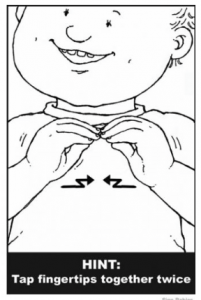Here are some songs and rhymes for Infant Development Playgroup! Some are very similar to the ones I have used or seen used in preschool however the actions are different or the pace the songs are sang are different!
Zoom Zoom Zoom
We’re going to the moon!
Zoom Zoom Zoom
We’re going to the moon!
If you want to take a trip climb a board my rocket ship
Zoom Zoom Zoom we’re going to the moon in 5-4-3-2-1 Blastoff!!
Now it’s time for Juice or Water
Juice or Water
Juice or Water
Now it’s time for Juice or Water
I want a drink!
Slippery fish, Slippery fish, Swimming in the water!
Slippery fish, slippery fish, slippery fish OH NO it’s been eaten by
An Octopus! An Octopus!
Squiwigling in the water!
An Octopus! An octopus OH NO it’s been eaten by a
a hermit crab, a hermit crab….
A humongous whale, humongous whale!
